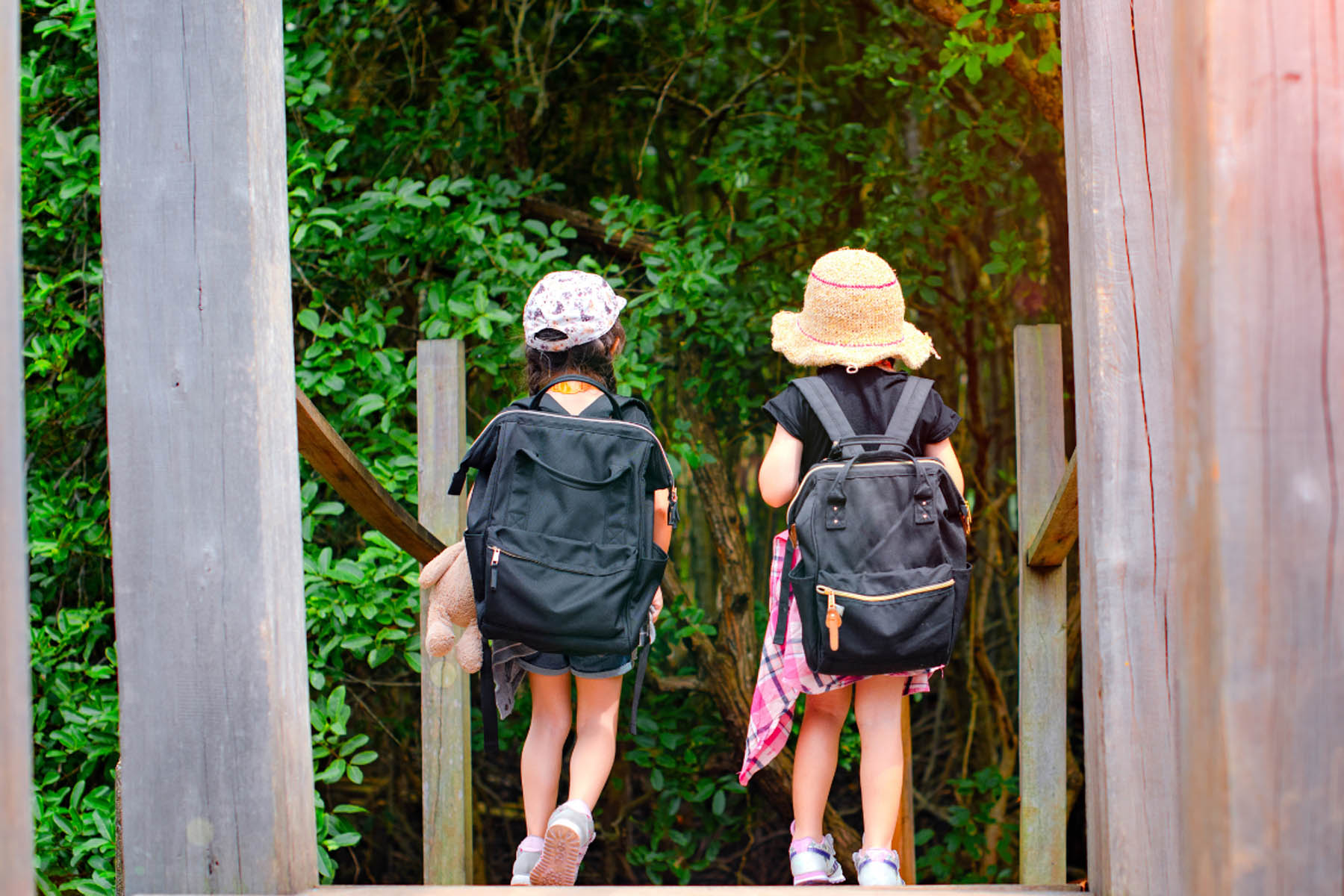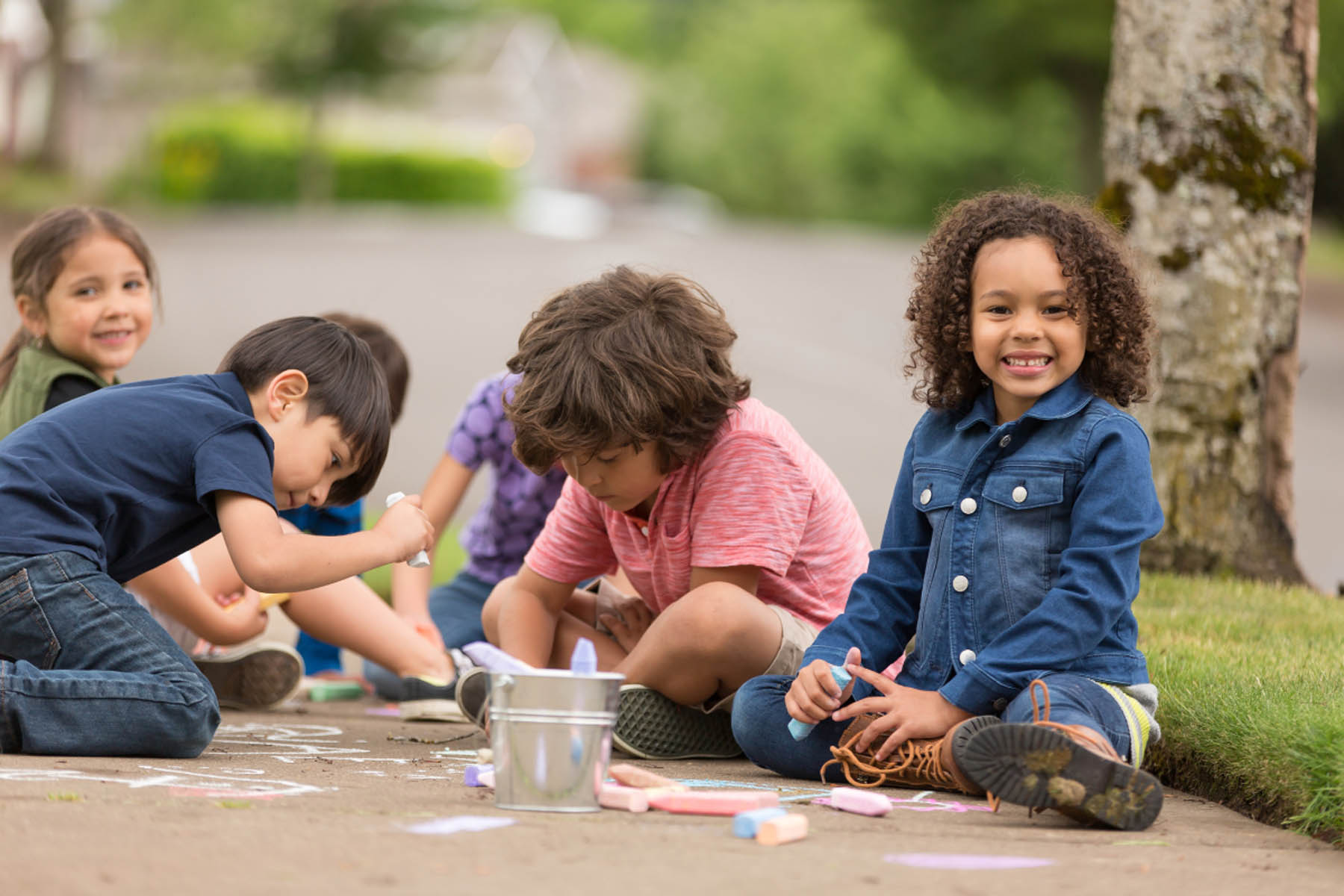Teaching Through Field Trips: Maximizing Out-of-Classroom Learning
As a preschool or Montessori teacher, you will teach most of your students within your classroom’s four walls. However, the world outside the school can be just as rich and educational, especially for preschool-aged children.
Field trips are an excellent way for children to learn more about the world around them. Out-of-classroom learning opportunities provide them with experiences that are fun, stimulate brain growth and development, and support learning and topics in the classroom.
In this article, we will explore how and why you should include field trips as an important teaching method to maximize learning for preschool and Montessori students. We’ll also share tips for planning great field trips.
Explore new environments
Children’s brains rewire and make synaptic connections when exposed to new experiences and environments. It’s an important part of how they learn about the world around them and their role in that world.
For young children, sensory-rich environments have great benefits. These environments are instrumental in nurturing their curiosity, fostering creativity, and promoting a sense of community.
Encourages curiosity
Children are naturally curious, and many enjoy learning through exploration. However, there are only so many opportunities for exploration within your classroom environment. Taking your students on a field trip or walking around the community is a great way to support their natural curiosity.
While on field trips, encourage your students to use their five senses and ask questions about what they see, hear, feel, taste, or smell. This interactive, sensory approach prompts them to get curious, observe their surroundings, and share their observations with their peers.
Promotes critical thinking
Critical thinking skills begin to develop in preschool-aged children. It’s crucial to making sense of their world.
Field trips bridge the gap between what students learn in the classroom and their real-world applications of that knowledge. They may learn a new perspective or viewpoint that they can use when problem-solving or interpreting their world.
For example, you may be teaching students basic counting skills in the classroom. If you take them on a field trip to an indoor play place with children-sized town play areas, they pretend to be adults and learn all the places where numbers and counting matter. They may use their counting skills as they pretend to be grocery store clerks, deliver mail, play restaurant, or be doctors. Experiences like this reinforce learning concepts and help children explore and be creative in a safe environment.
Pushes children outside their comfort zone to build adaptability
Comfort in their classroom is critical for children, especially in early childhood. However, equally as important is the role of educators in guiding children through new experiences, to take them slightly out of their comfort zone and foster growth and adaptability.
Routines help children learn responsibility and good habits. Class trips help students learn how these good habits translate outside the classroom. For example, if your students line up by the wall after playground time, they can learn how to gather and line up in other environments, like after free exploration time at the local science center.
Many of your students may feel comfortable with the classroom rules and routines. Taking them into new environments shows them these rules have broader applications than their classroom or home.
Encourages hands-on learning
Even if you practice hands-on learning methods in the classroom, hands-on learning opportunities in the larger world open up new experiences and learning opportunities for preschool-aged children.
Hands-on learning engages all five senses and different learning styles, including:
- Tactile learning (through touch)
- Auditory learning (through hearing)
- Kinesthetic learning (through movement)
- Olfactory learning (through taste and smell)
Multisensory experiences like these increase engagement and support for students who learn differently. They can also boost learning outcomes or comprehension of what’s being taught because they make connections from multiple perspectives or senses.
(Don’t forget that while hands-on learning is beneficial, it can lead to the transfer of germs. Be sure to remind children of good hygiene and allow them to wash or sanitize their hands often on trips.)
How to plan a successful preschool or Montessori class field trip
If you have an idea for a preschool or Montessori class field trip, here are four helpful steps and hints to plan a successful trip:
- Link to curriculum or children’s interests: While not required, find a field trip that links to a topic or subject you’re teaching your students. You can also plan educational field trips based on your children’s interests (like drama).
- Follow rules and protocols: Your school administrator likely has rules and regulations regarding taking students off the property during school hours. These rules likely include getting parental permission. You will also likely need to carry a backpack or bag with emergency contact information for each student, student medications, and basic first aid supplies.
- Involve students in planning: Slightly older preschool and Montessori students may feel a sense of ownership and excitement in planning their field trips. you could give them a list of field trip ideas and have them vote on their favourite ones. For younger students, you could engage them in an activity where they make a packing list for their field trip or draw what they expect to see on their trip.
- Debrief students afterwards: Reflecting with your students on a recent field trip is a great way to evaluate the success of your adventure. Ask students to share their favourite part of the trip or the most memorable new fact they learned. You could turn this into an art project for your creative students to express themselves. Do this reflection activity with your students as soon as possible after the trip, before they “forget.”
Bonus: Not all field trips need to leave the classroom. Consider a virtual field trip to a world-famous museum. These are educational and fun and make a great alternative when in-person field trips are not possible. Here are a few museums that offer free virtual tours.
Prepare for a successful preschool or Montessori teacher career
Planning fun and educational field trips is only part of being a preschool or Montessori teacher. When you take your teacher training from Capital College, you learn everything you need to teach young children, including childhood development, teaching methods, and other helpful information for working with children up to age 6.
Browse programs for ECE and Montessori teachers on our website and apply today to join our next cohort.

